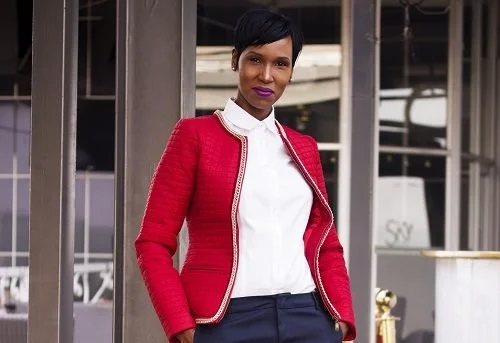What’s new?
RLabs Botswana's Tshepang Lerato Seisa on teaching Batswana mothers how to use technology
[sidebar_widget sidebar_id="sidebar-1" width="1/1" el_position="first last"] [spb_text_block pb_margin_bottom="no" pb_border_bottom="no" width="1/1" el_position="first last"]Tshepang Lerato Seisa is the co-founder of RLabs Botswana, a Social Enterprise focusing on grassroots ICT and entrepreneurship training for low income communities, where unemployment and substance abuse are rife.
"I have been fortunate and blessed enough to be raised by a mother who broke many glass ceilings and believed in my abilities when I didn't realise my own potential. I spent many years “running away” from STEM during my secondary and university years which is now surprisingly my passion."

- Tell us about RLABS Botswana. What inspired this, and what are some of the activities you run?
"In 2012, I was selected to be part of the Young African Leaders Initiative (YALI) where I had the opportunity to meet the founder of Reconstructed Living Labs (RLabs), Marlon Parker; a South African social entrepreneur and a World Economic Forum Young Global Leader. Inspired by his social enterprise using ICT to empower communities, Marlon and I co-founded RLabs Botswana.RLabs focuses on grassroots ICT and entrepreneurship training for low income communities, where unemployment and substance abuse are rife. Our most popular classes are the ‘Mom Tech’ classes where we teach poorly educated mothers how to use technology."
- Why is technology important to you?
"For social entrepreneurs, technology knows no income bracket or status. Once you break the knowledge and access barriers, it transforms the lives of communities as they are able to access a bigger pool of information and form connections they would not normally make in society. As cliché as it sounds, technology levels the playing field."
- How can tech innovation catalyze growth and productivity in Botswana?
"At RLabs we believe in innovation and not necessarily tech innovation. Innovation is about idea generation, how can we tap into innovative ideas to transform our communities and, more importantly, how we can restore hope into communities affected by high youth unemployment and substance abuse; two socio-economic factors that are now probably the biggest problems facing Botswana. Whilst Batswana are highly educated, our education is geared towards making us good employees and not necessarily good citizens of our communities. With innovation we can create avenues to generate enough income to acquire basic necessities."
- What are some of the challenges you have had to face as a social entrepreneur?
"I would say I have had to ‘un-learn’ a lot of misconceptions and self-entitlement about being an ‘entrepreneur’, the main being heavily relying on government support and uptake. The biggest mistake social entrepreneurs make is not constantly seeking new avenues of funding to keep our programmes going."
- What would you say are some of your strongest beliefs/thoughts about the scarcity of women in technology, especially in Botswana?
"Funny enough, there are many women in the STEM space in Botswana mainly due to the fact that we have benefited from free quality education. However many are unemployed and do not have the skills to become entrepreneurs. What we need is more women getting into the development space and actively seeking out opportunities for Venture Capital funding."[/spb_text_block]


